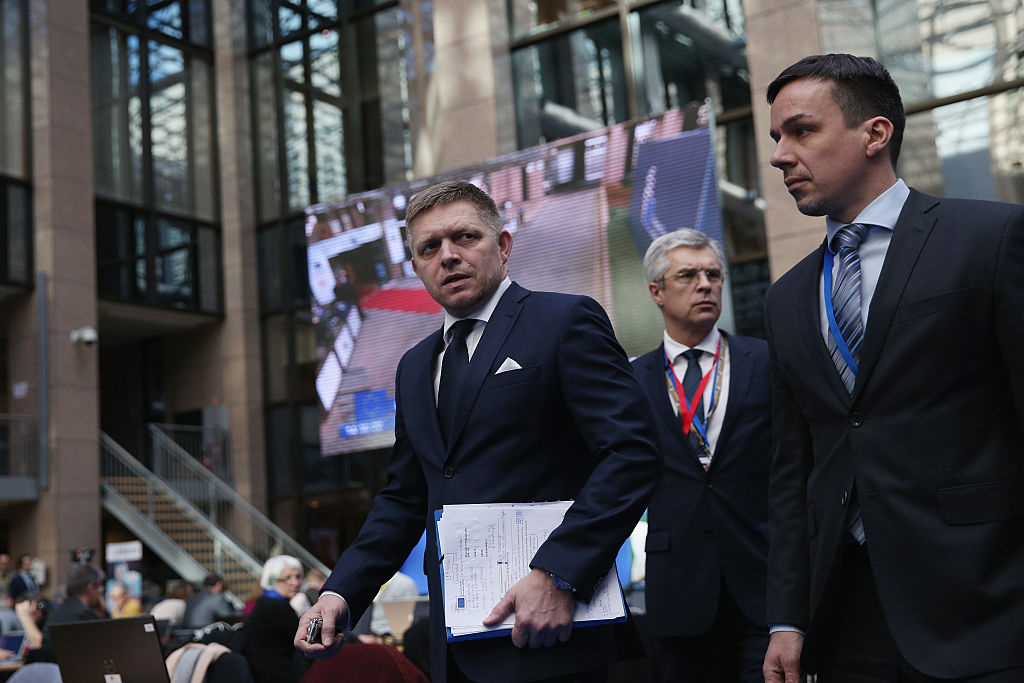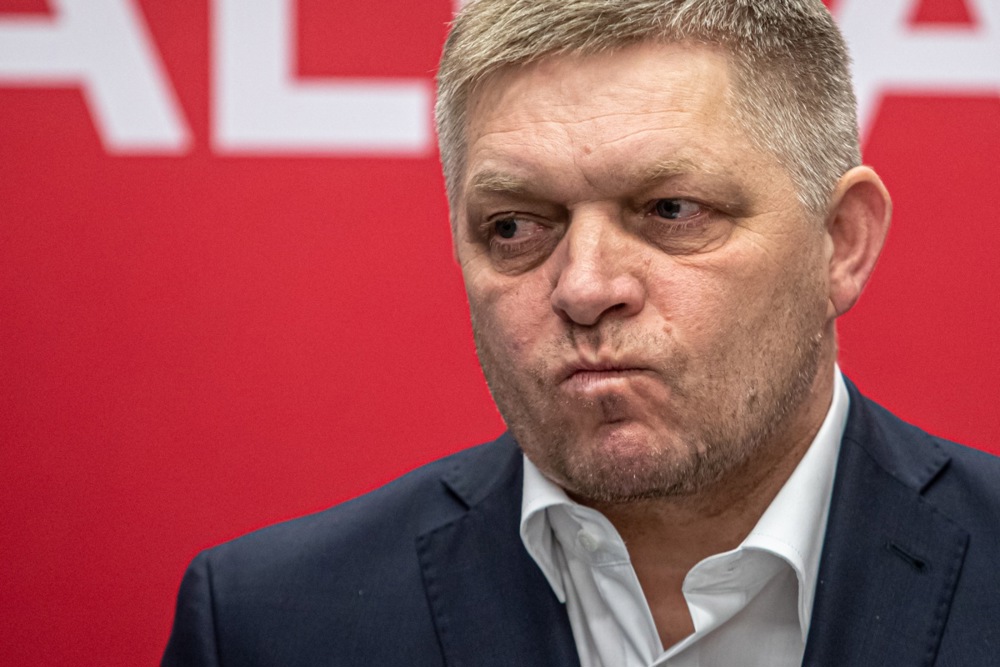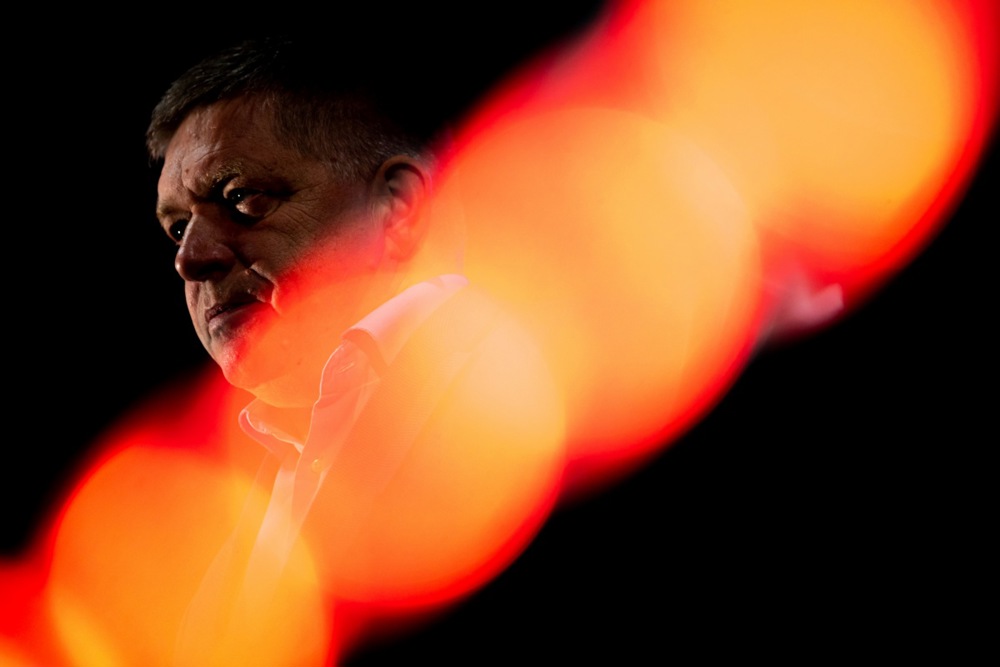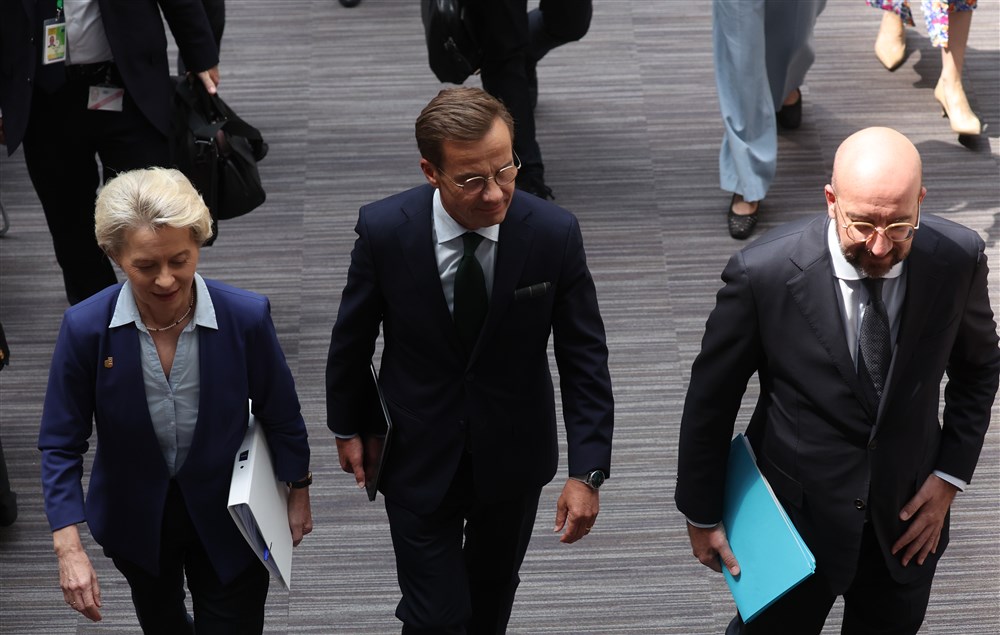Robert Fico is to be installed as Prime Minister of Slovakia just in time for the summit of the European Council on October 26-27.
Dubbed “pro-Russian” by many commentators for his negative stance on the European Union’s support of Ukraine in its war against Russia, Fico will lead a new coalition of left-wing and hard-right parties.
This will be Fico’s fourth stint as Prime Minister of Slovakia.
His appointment is likely to cause a stir at the Council, as the Ukraine war and migration – over which he bucks the EU consensus – are the leading issues on the body’s provisional agenda.
Despite that, Anrej Danko, the head of the hard-right Slovak National Party (SNS) and Fico’s coalition partner, said: “I believe that Robert Fico can happily go to Brussels on Thursday.”
Fico’s electoral success has already caused a stir within the so-called “Eurobubble”.
While his Smer party and his other coalition ally, Peter Pellegrini’s Hlas party, both identify as being left-wing, Social Democratic movements, they hold Conservative positions on issues such as mass migration and LGBT matters.
This led to the European Parliament’s centre-left S&D Group expelling its Slovakian MEPs earlier in October over their differences of opinion.
That did not stop the centre-right EPP Group from taking pot-shots at the EU Socialists, with EPP head Manfred Weber comparing the Slovakian’s membership of S&D to the former EPP membership of Viktor Orbán’s Fidesz party.
The Party of European Socialists has suspended its Slovakian members over their perceived pro-Russian views. https://t.co/xHAYGqkEKv
— Brussels Signal (@brusselssignal) October 13, 2023
The longest-serving head of state since the fall of Communism, Fico was forced to resign after a mass wave of protests in 2018. Those were caused by the assassination of the journalist Ján Kuciak and his fiancé after the publication of an in-depth investigation into alleged ties between the then-government and organised crime.
The following government, led by the centrist-populist OL’aNO party and its showman leader Igor Matovič, proved highly unstable.
The resulting political chaos and the harsh economic circumstances unleashed by the Covid-19 pandemic, plus Russia’s invasion of Ukraine, allowed Fico to stage a comeback.
The issue of political stability is an important one for the current regime. “I will do everything to ensure there is a stable government in these next four years,” said Danko.
The new administration hit a bump when the Slovakian President Zuzana Čaputová refused to appoint the first suggested environment minister, Rudolf Huliak. Čaputová, a member of Progressive Slovakia – the main Liberal and pro-EU opposition party – said she could not appoint anyone she considered to be climate change denier.
Slovakian President decries nomination of ‘climate-change sceptic’ as environment minister. https://t.co/d2HUAndXM8
— Brussels Signal (@brusselssignal) October 20, 2023
While the new government is likely to continue causing a stir in the EU, some observers believe Fico and his administration are ultimately pragmatists.
With the next EU Council summit imminent, Fico’s position on various issues remain to be seen.





